Tag: Stephen Crone
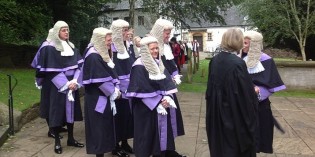
Legal aid cuts may mean excluded members of society are denied access to a vital part of our democratic system
Thousands of lawyers are today protesting outside courts at planned cuts to legal aid. Stuart Wilks-Heeg, Stephen Crone, and Andrew Blick considered this topic in the 2012 audit of UK democracy, identifying concerns about the difficulty citizens face in accessing legal aid, which have intensified since the coalition government was elected. It is clearly necessary, if the rule of […]
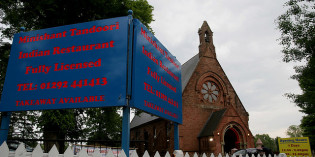
Protections for the freedom of religion have improved over the last decade
In the 2012 Audit of Democracy, Stuart Wilks-Heeg, Stephen Crone, and Andrew Blick looked at the key issue of religious freedom in Britain. While the country remains relatively secular in practice, the British state is tied up by anachronistic historical relics such as an established church and the continued presence of Bishops in the House of Lords. Despite […]

The political affiliations of the UK’s national newspapers have shifted, but there is again a heavy Tory predominance
The 2010 General Election saw the Conservatives gain a number of newspaper endorsements, and failed to win outright. But while there is a consensus that newspaper endorsements matter less today than they once did, they remain a significant force in shaping the political outlooks of their readers. In the 2012 Audit of Democracy, Stuart Wilks-Heeg, Andrew […]

MPs pay has risen sharply since the 1970s – but it is outside earnings that should really concern us
There is a long tradition of elected representatives in the UK drawing income from activities ‘external’ to their work in parliament. In part, this tradition reflects the belated acceptance of a need to pay MPs a full salary. In the 2012 Audit of UK democracy, Stuart Wilks-Heeg, Andrew Blick and Stephen Crone looked at the […]
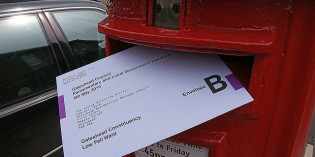
What is the extent of electoral fraud at English elections?
The Attorney General Dominic Grieve MP has apologised for controversial remarks about corruption among ethnic minority groups in the UK. In the 2012 audit of UK democracy, Stuart Wilks-Heeg, Andrew Blick and Stephen Crone examined the extent of electoral fraud in English elections, finding that instances had fallen in recent years after a sharp increase […]
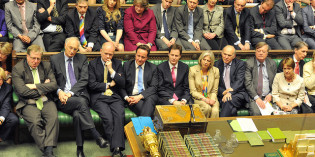
Britain’s bloated payroll vote hampers Parliament in keeping a check on the executive
The latest Coalition reshuffle saw the size of the payroll vote remain steady, with 140 members of the Government benches in the House of Commons now compelled to vote in line with the frontbench, or else lose their position. In previous Democratic Audit reports and articles, Stuart Wilks-Heeg, Andrew Blick, and Stephen Crone have considered the […]
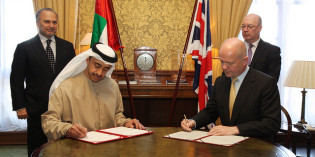
The UK is inconsistent in its support for human rights and democracy overseas
In the 2012 audit of UK democracy, Stuart Wilks-Heeg, Andrew Blick, and Stephen Crone discussed the role of the UK in promoting democracy and human rights overseas. They found the UK purports to set itself high standards in this area, and has made progress recently by agreeing new international human rights instruments. Our relationship with the European Convention on Human Rights suggest […]
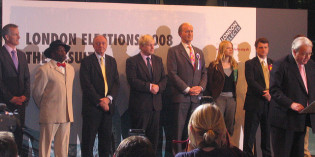
Rules on election deposits create an uneven playing field and protect the interests of the largest parties
Evidence suggests a multi-party system is slowly emerging in UK politics, but our electoral rules may be impeding its development. In the 2012 audit of UK democracy, Stuart Wilks-Heeg, Andrew Blick, and Stephen Crone considered the requirements for candidates to pay a deposit in order to stand for election, and showed how these had a disproportionate impact on small parties. With a number […]
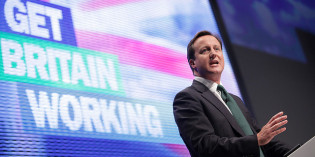
Conservative members have less influence on policy than those in the other major parties
David Cameron’s speech to the Conservative Party conference in Manchester today marks the end of the major parties’ conference season. In the 2012 audit of UK democracy, Stuart Wilks-Heeg, Andrew Blick, and Stephen Crone considered how influential members were on political party policies, including via conferences and other mechanisms. They found varying levels of influence across the major parties, with Conservative members having […]
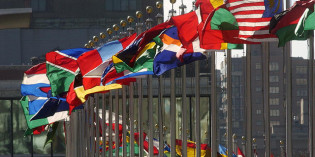
How far does the UK support the United Nations and respect the international rule of law?
The government’s recent proposal for intervention in Syria was rejected by Parliament. The debate raised questions about the influence of international law on UK foreign policy, reviving a discussion that accompanied British military involvement elsewhere in the region – in Iraq, Afghanistan and Libya. In the 2012 audit of UK democracy, Stuart Wilks-Heeg, Andrew Blick, and Stephen Crone found that the UK’s professed […]


 Democratic Audit's core funding is provided by the Joseph Rowntree Charitable Trust. Additional funding is provided by the London School of Economics.
Democratic Audit's core funding is provided by the Joseph Rowntree Charitable Trust. Additional funding is provided by the London School of Economics.